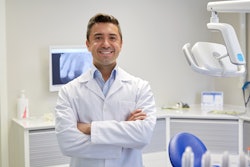
Certain personality traits, like agreeableness and neuroticism, may be linked to specific dental occupations, according to a study recently published in the American Journal of Orthodontics and Dentofacial Orthopedics.
Orthodontists may be more conscientious, general dentists may be more neurotic, and dental nurses may be more agreeable, according to a study of dental professionals conducted in the U.K. The analysis is believed to be the largest personality survey among dental professionals to date.
“Encouraging dental team members to acknowledge their personalities, proclivities, and unconscious behaviors may prevent unnecessary confrontation and resentment,” wrote the authors, led by Dr. Naeem Adam of the department of oral and maxillofacial surgery at the Leeds Dental Institute in the U.K. (Am J Orthod Dentofacial Orthop, September 5, 2023).
Despite its effect on occupational performance and team dynamics, few studies have explored the personalities of dental professionals. To investigate the personality of dental professionals in the U.K. and differences among groups, participants responded to a survey that collected demographic information and contained the self-reported personality test the Big Five Inventory. They were scored on traits, including neuroticism, agreeableness, and conscientiousness, according to the study.
Of the 906 dental professionals, 475 were dental nurses, 182 were general dentists, 201 were orthodontists, and 48 were oral and maxillofacial surgeons.
Compared to general dentists, orthodontists and dental nurses had greater mean conscientiousness. Orthodontists had a mean conscientiousness score that was 0.23 points higher than general dentists (95% confidence interval [CI], 0.10 to 0.36; p <0.001). Dental nurses had a mean conscientiousness score that was 0.28 points greater than dentists (95% CI, 0.17 to 0.39), the authors wrote.
Also, orthodontists and oral and maxillofacial surgeons were less neurotic than dental nurses, and dentists had a higher mean neuroticism score than surgeons. Dental nurses had a mean neuroticism score that was 0.21 points higher than orthodontists (95% CI, 0.06 to 0.36; p = 0.002) and 0.43 points higher than oral surgeons (95% CI, 0.16 to 0.70; p < 0.001). However, dentists had a mean neuroticism score that was 0.43 points higher than oral and maxillofacial surgeons (95% CI, 0.14 to 0.71; p = 0.001), they wrote.
Furthermore, dental nurses were considered more agreeable than orthodontists and oral and maxillofacial surgeons. Dental nurses had a mean agreeableness score that was 0.16 points higher than orthodontists (95% CI, 0.05 to 0.27; p = 0.002) and 0.30 points higher than surgeons (95% CI, 0.10 to 0.50; p = 0.001), according to the study.
Nevertheless, a shortcoming of the study may be that the sample didn’t represent the four dental positions. Therefore, generalizability may be limited, the authors wrote. In the future, studies should be conducted to determine which personality traits are the most likely to show the greatest positive changes after working in a specific job for an extended period, they wrote.
“The magnitude of these differences is likely to have a meaningful impact when viewed in the context of effect sizes reported in the personality literature,” Adam and colleagues wrote.




















